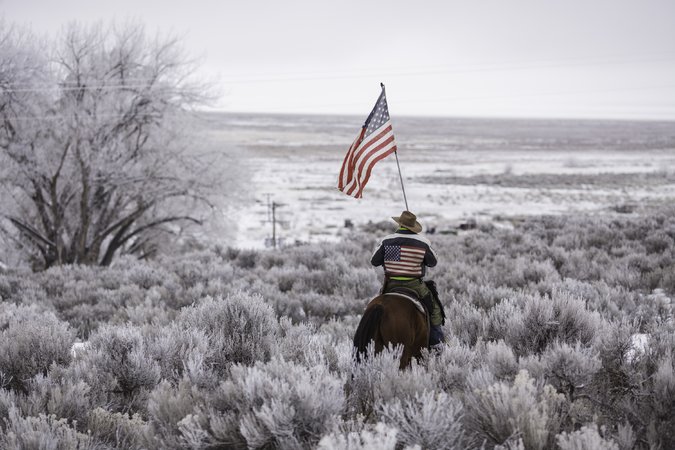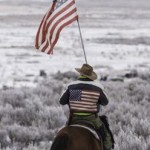
Ken Ivory, a Republican member of the Utah House of Representatives representing District 47 from Utah since January 2011, has been roaming the West with an alluring pitch to cattle ranchers, farmers and conservatives upset with how Washington controls the wide-open public spaces out here: This land is your land, he says, and not the federal government’s.
Mr. Ivory, a business lawyer from suburban Salt Lake City, does not fit the profile of a sun-scoured sagebrush rebel. But he is part of a growing Republican-led movement pushing the federal government to hand over to the states millions of acres of Western public lands — as well as their rich stores of coal, timber and grazing grass.
“It’s like having your hands on the lever of a modern-day Louisiana Purchase,” said Mr. Ivory, who founded the American Lands Council and until recently was its president. The Utah-based group is funded mostly by donations from county governments, but has received support from Americans for Prosperity, the group backed by the billionaire Koch brothers.
The idea, which would radically reshape the West, is one that resonates with the armed group of ranchers and antigovernment activists who seized control of a wildlife refuge in Oregon more than a week ago. Ammon Bundy, the crew’s leader and the scion of a Nevada ranching family steeped in disputes with the federal government, said he and his sympathizers had gone to Oregon to give the refuge back to local ranchers.

Many conservatives — Mr. Ivory among them — criticized Mr. Bundy’s gun-toting tactics, but their grievances and goals are nearly identical. And the outcry has grown amid a dust storm of rural anger at President Obama’s efforts to tighten regulations on fracking, air quality, small streams and other environmental issues that put struggling Western counties at odds with conservation advocates.
In the past few years, lawmakers across the West have offered up dozens of bills and resolutions seeking to take over the federal lands inside their borders or to study how to do so. Some of the legislation has been aimed at Congress, to urge it to radically revise the laws that have shaped 550,000 square miles of national forests and terrain run by the federal Bureau of Land Management, stretching from the Great Plains to the Pacific.
The effort — derided by critics as a pipe dream that would put priceless landscapes on the auction block — has achieved little so far.
Utah is the only state to pass a law demanding that Washington hand over federal land to the state. That transfer never happened, so now, Republicans on a state land commission are pressing for a $14 million lawsuit to claim 31.2 million federal acres of canyons, scrub desert and rolling mesas. The state’s attorney general, a Republican, has said he is studying the case and will make a decision about whether to move forward.
Colorado’s experience illustrates how the land-transfer discussion far exceeds any concrete results. Last year, a Republican state senator from the agricultural eastern plains sponsored a bill to create a Colorado Federal Land Management Commission, to study turning over federal lands to the state. The measure never made it out of the Republican-controlled State Senate.

In Congress, Republicans have supported moves to set up a land-transfer fund and create a “framework” to hand federal acres to the states.
Last week, Representative Greg Walden, the Republican who represents the Oregon district where the Bundy takeover is playing out, stood up in Congress to deplore the tactics of the armed protesters, but sympathized with their frustration. “More than half of my district is under federal management, or lack thereof,” Mr. Walden said, expressing anger at the Bureau of Land Management. “They have come out with these proposals to close roads into the forests. They have ignored public input.”
In July 2014, Senator Ted Cruz of Texas proposed preventing the federal government from owning more than half of any state’s land. (Five states are more than half federal land, according to a Congressional Research Service report.) And Representative Cresent Hardy, Republican of Nevada, whose district includes a ranch run by Mr. Bundy’s father, introduced a measure that would block the government from buying any new land unless it could pass a balanced budget.
But land experts say the movement offers few details about what would happen the day after the federal government handed over all its land. How would states afford hundreds of rangers, officers and administrators to keep the land safe and comply with complicated federal laws on environmental policy and protecting endangered species? Would the land stay public, or be sold off to the highest bidder?

“They conveniently avoid all the difficult questions,” said Martin Nie, the director for the Bolle Center for People and Forests at the University of Montana.
In its mission statement, the American Lands Council says its strategy for securing local control of public land in the West involves four tenets: education, negotiation, legislation and litigation.
In practice, local land disputes — fueled by deepening antagonism toward federal land agencies — now unfold like social-media passion plays. Last summer, armed groups intervened by providing security and standing guard at mines in Oregon and Montana that had received stop-work orders from the Bureau of Land Management. And in December, Phil Lyman, a commissioner in San Juan County, Utah, received a 10-day jail sentence after he led a protest ride on all-terrain vehicles through federal area that had been closed to motorized use.
“All I did was drive down a canyon road,” Mr. Lyman said. “It seems to be getting worse, and the federal agencies, they are expanding. Their restraints are being overstepped. It’s not the way this country was set up. It’s not the founders’ design.”
Not surprisingly, environmental activists have opposed dismantling federal lands, but so have hunters and anglers who worry their elk-hunting grounds and trout streams would be sold to private hands and developed. Unlike the federal government, many states require that their land be used as profitably as possible.

About an hour’s drive from the wildlife refuge where Mr. Bundy’s group is facing off with the government, Erin Maupin and her husband, Jeff, pay the government each summer to feed their cattle on 19,000 acres of federally owned land. She said that like many ranchers, they wanted to work with the government, but that layers of grazing restrictions and environmental rules were getting out of hand.
“We want somebody to make sure we’re doing it right,” Ms. Maupin said. “But it’s got to the point where there’s no common sense in it.”
The resentments toward federal land managers feel sharpest in economically strapped rural counties from Arizona to Montana, where up to 90 percent of the lands are federally managed. People love the beauty that surrounds them, but seethe at policies that they say have whittled away logging and mining jobs, left national forests vulnerable to wildfires and blocked access to public land.
“The land policies now are, basically, lock it up and throw away the key,” said Leland Pollock, a commissioner in Garfield County, Utah, a county roughly the size of Connecticut with pine forests and stunning red-rock spires. “It’s land with no use. The local economy’s really suffered as a result. Grazing has been reduced. We used to have a thriving timber industry — that’s all but gone.
By Jack Healy and Kirk Johnson
